
Hey everyone, you might have noticed a slowdown in posts over the past week or so. There’s a good reason for that—we just wrapped up our annual ACVP/ASVCP pathology conference in Chicago and I got back from that jam-packed week last night. As usual, the meeting was a ton of fun and I learned a lot. It was a typically chilly late October in the “Windy City,” and we got to experience both the colorful fall leaves and early snow flurries on the last day 🥶 The meeting also ended on Halloween with a fair number of people dressed up in costumes (some of them pathology-themed!) 🎃
The Main Topic: Digital Pathology and AI
For those who couldn’t make it to the meeting, or simply people who were running from talk to talk and wanted to get a big picture view of this year’s content, I fed the clinical pathology lecture titles into ChatGPT and had it generate a word cloud:
Do you notice a theme???
Digital pathology and AI were far and away the focus of the meeting, with lots of timely talks about how they are being implemented in commercial labs today as well as what the future might hold. All Science readers know this is right in my wheelhouse, and I’ve written about those topics on many occasions:
To go deeper, I asked ChatGPT to summarize the main themes…
GPT-4 Summary of Themes:
Digital Clinical Pathology: The future of digital microscopy in veterinary clinical pathology seems to be a dominant theme. Multiple talks focus on the introduction, training, and implementation of digital clinical pathology across various institutions and organizations such as IDEXX, Zoetis, Moichor, and Antech Diagnostics.
Artificial Intelligence in Pathology: AI's application in pathology is another recurring theme. Talks discuss AI's integration into both human and veterinary pathology, including its use in data mining and diagnostic assistance.
Avian and Reptile Hematology: Several talks are devoted to understanding avian and reptile hematology, including topics like avian biochemistry.
Big Data and Data Mining: With the advent of AI and digitalization, the use of big data in making decisions and data mining in microscopy datasets to aid diagnostic pathologists is highlighted.
Analysis Techniques: Various talks delve into specific analysis techniques such as flow cytometry, enzyme-linked immunosorbent assays, and hematology analyzers.
Disease and Condition-specific Discussions: There are in-depth explorations of specific conditions or diseases in animals, e.g., feline obesity, canine visceral hemangiosarcoma, and acute acalculus cholecystitis in dogs.
Platelet Research: Several talks emphasize platelets, their function, preparation methods, and implications in various conditions.
Basophilia and Eosinophilia: A couple of talks explore basophilia and eosinophilia in different animals and their associated diseases.
Cytology: Some talks focus on the cytological findings in various conditions, such as pulmonary cytology in canines.
GPT-4 did a pretty thorough job capturing what went down!
Here is one of the poster abstracts on development of AI for grading canine mast cell tumors on cytology. It is roughly based on the existing cytologic grading framework for MCTs).
This interesting poster showed that adapting an existing algorithm for skeletal muscle from another use case performed far better than building a new one from scratch specifically for the purpose (aka “transfer learning”). This is useful as it may accelerate development of certain algorithms and prevent wasted time and resources.
There were also a ton of great abstracts on microRNA biomarkers for everything from cancer to use in joint fluid to assist with diagnosing osteoarthritis:
There’s simply no way to cover all the great research that was presented, so I would encourage people to read the abstracts and proceedings when they’re available.
One of the most attended sessions at the conference was “The Exodus of Pathologists from Academia” (another hot topic I’ve written about here). Dr. Sam Evans of CSU and Dr. Cheryl Lawson at Iowa State put together incredibly granular and insightful survey data from pathologists inside and outside academia about current and future staffing needs, pain points, and likelihood of staying or leaving their current jobs. Their quantitative data corroborates my anecdotal observation that about half of university pathology departments are currently understaffed. This survey data should be published in one of our peer-reviewed journals soon—stay tuned!
After reviewing the survey results, a panel of well-regarded pathologists across multiple sectors (academia, government, ToxPath, commercial diagnostics, etc) provided their thoughts on issues and solutions. During the Q&A, there were a lot of passionate comments about causes for the shortage ranging from resident mistreatment, bias and DEI, to funding shortfalls, excess workload and issues with recognition and promotion. They say the first step to solving a problem is admitting you have one, so I am hopeful we now all agree this is a serious matter we need to work together to remedy.
Resident Talks
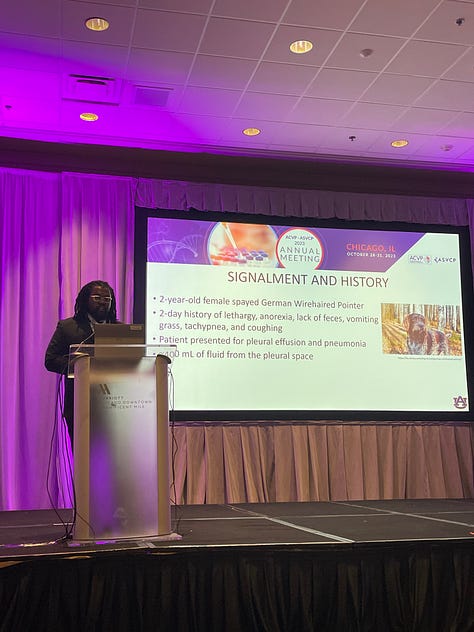
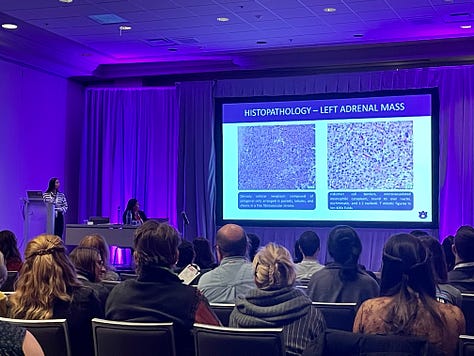
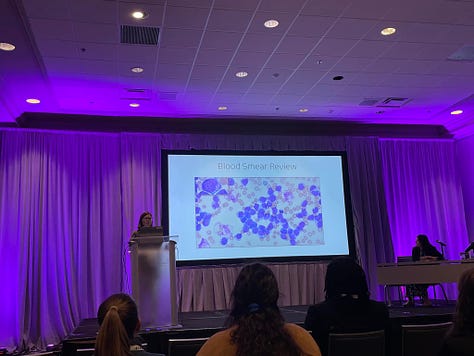
On a happier note, there were many great resident presentations of bizarre and uncommon diseases on Monday and Tuesday. Auburn was well-represented by presenting 2 of the 4 chemistry Case Discussion talks and a really cool Mystery Slide case (a cat with circulating tumor cells from a rare adrenal cancer that was also causing hormonal imbalances 😱). The audience was really engaged and responded to their presentations with thoughtful questions, and at the risk of embarrassing them, a number of attendees came up to me after to say how impressed they were with the whole team.
The kudos didn’t end there! Current third year resident Dr. Thaina Lunardon won the Young Investigator Award for Basic Science Research, and outgoing resident Dr. Cornelius Withers won the Davis-Thompson Foundation Trainee Scholarship Award for residents who excel in diagnostics, teaching, and mentoring.
Congratulations to both! 🥳
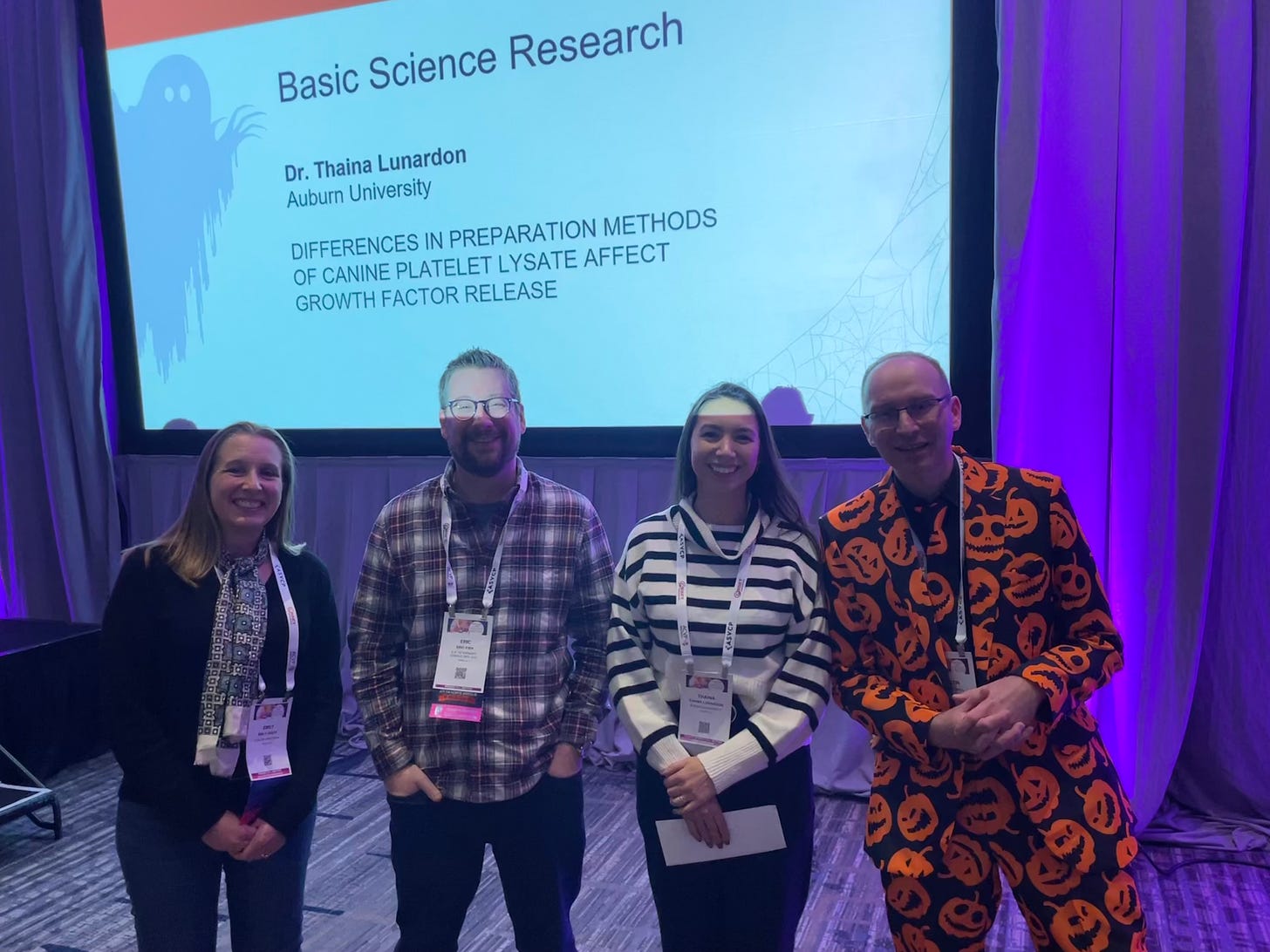
No conference would be complete without socializing over copious food and drinks, and ACVP 2023 was no exception! I’m more of an introvert than an extrovert, but it is definitely nice to be able to reconnect with old friends and make new ones after several years of remote work and cancelled/virtual conferences due to COVID-19.
Upcoming…
On a final note, I want to tease a cool media collaboration that will be coming out in the near future: I was interviewed on the new podcast “ACVP: A Conversation in Veterinary Pathology”! We had a fun and wide-ranging conversation about my career in and out of academia, artificial intelligence, and my science writing on Substack. I will post the episode when it airs!
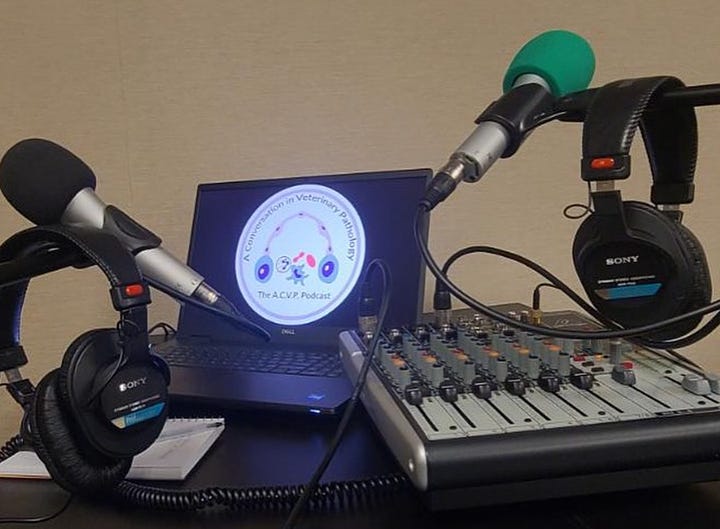
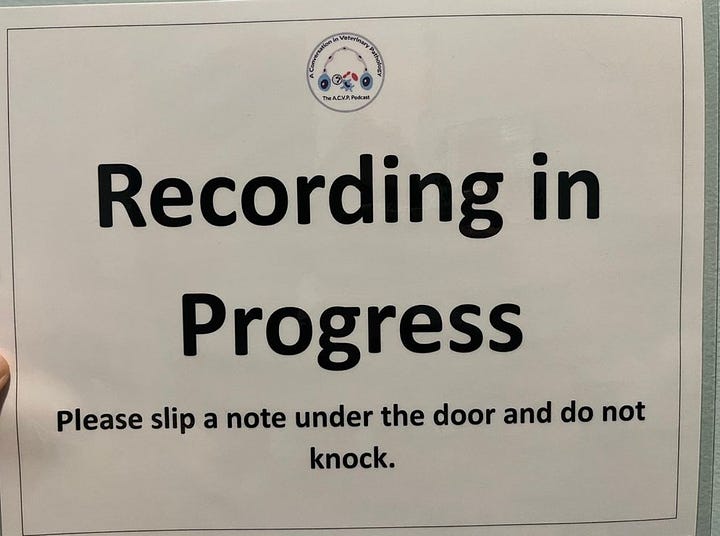





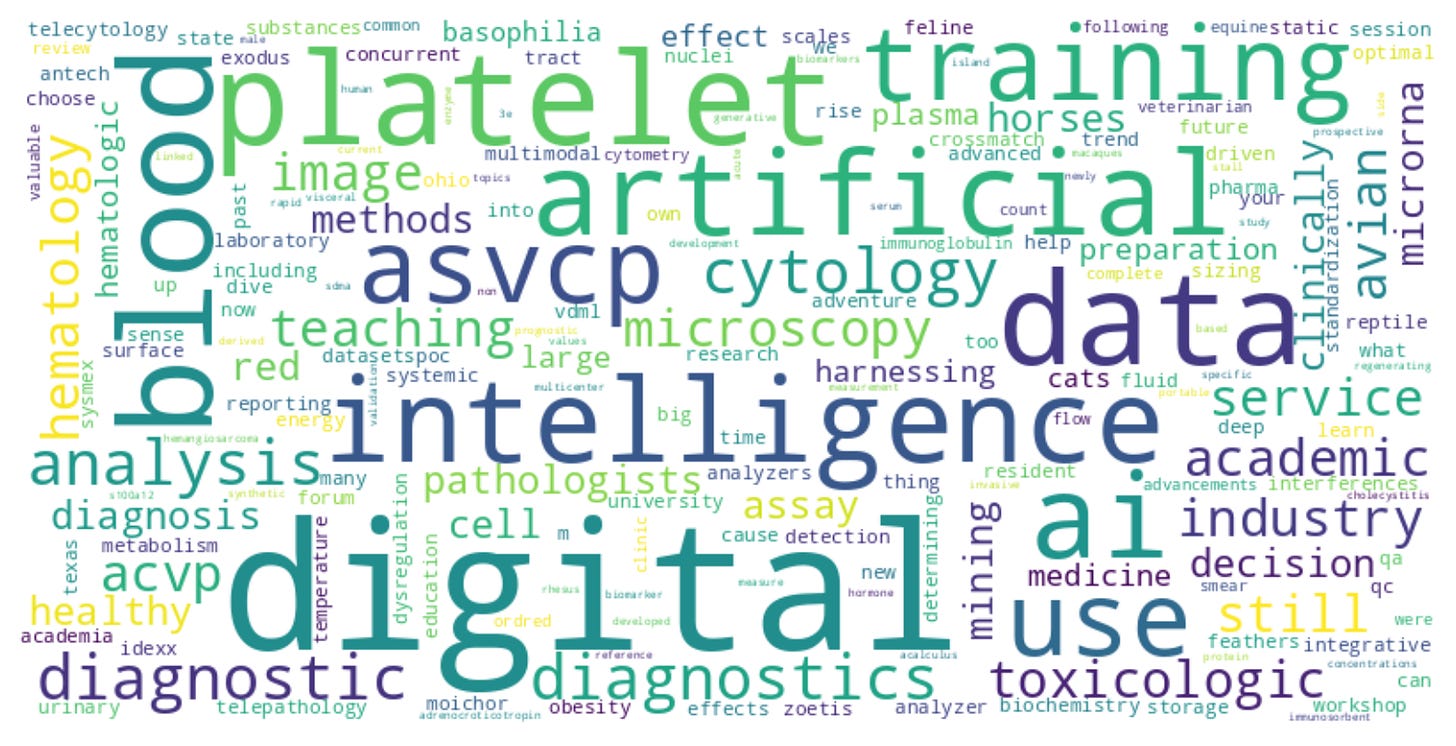



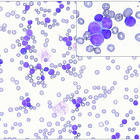
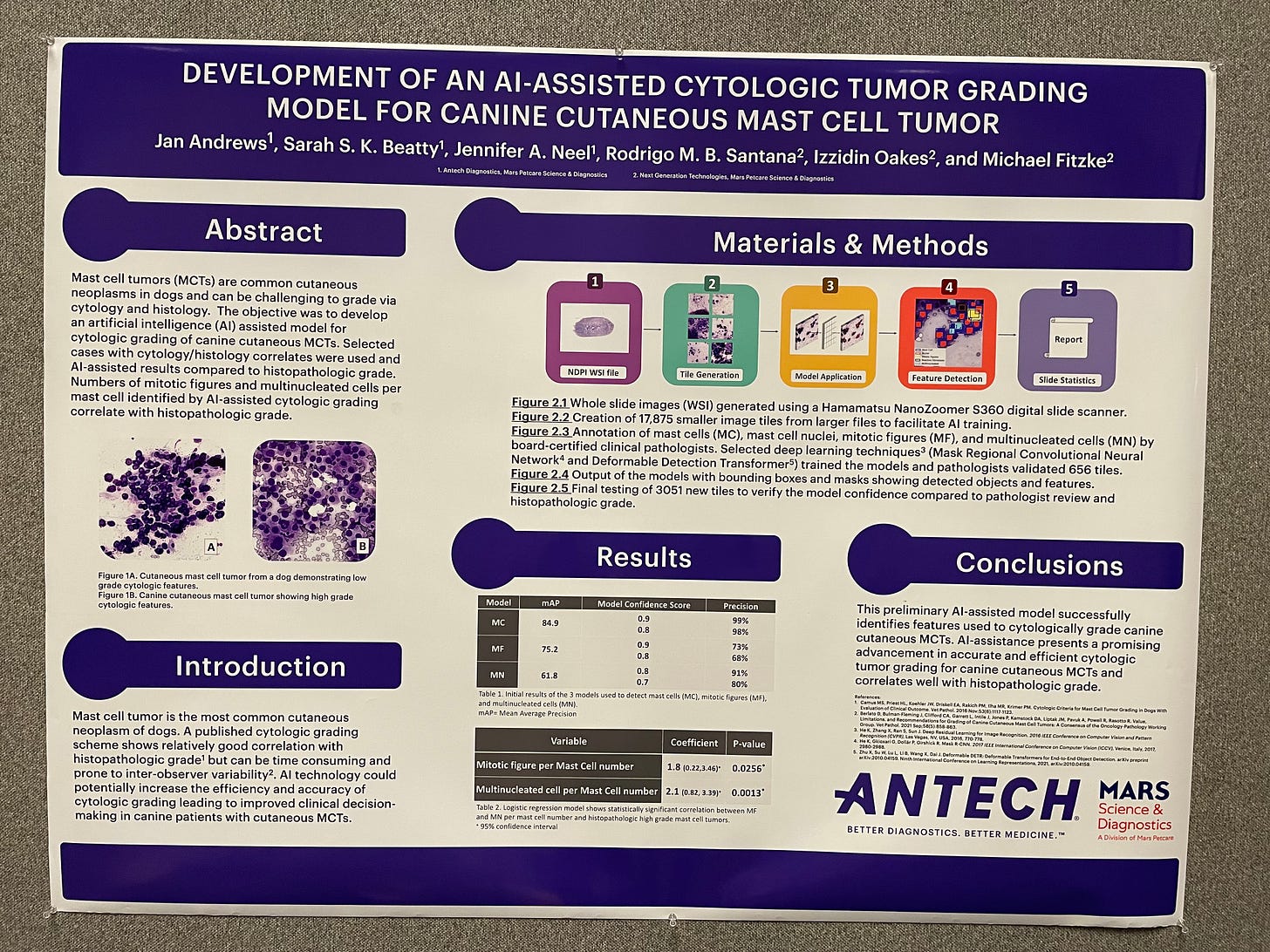
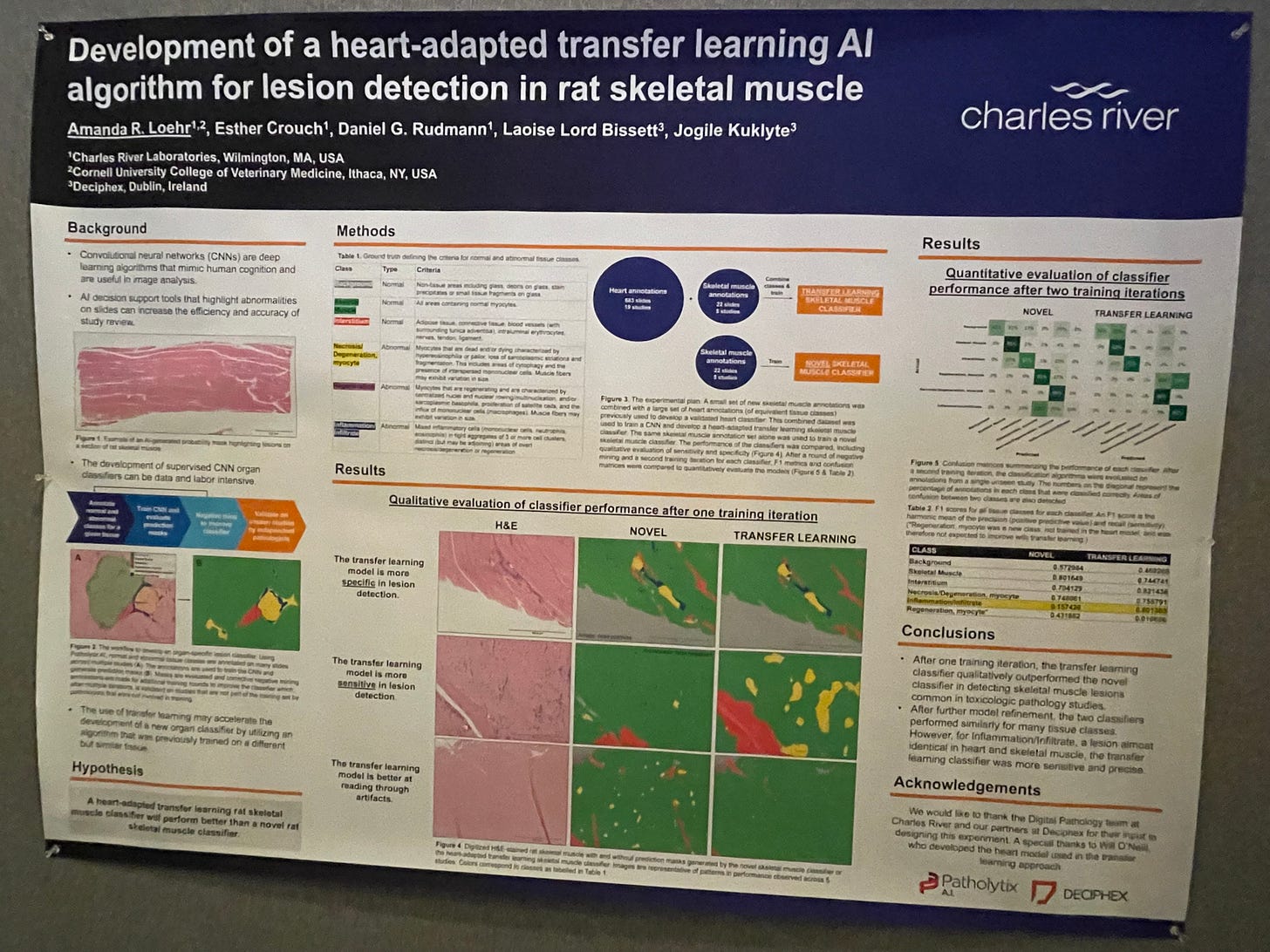
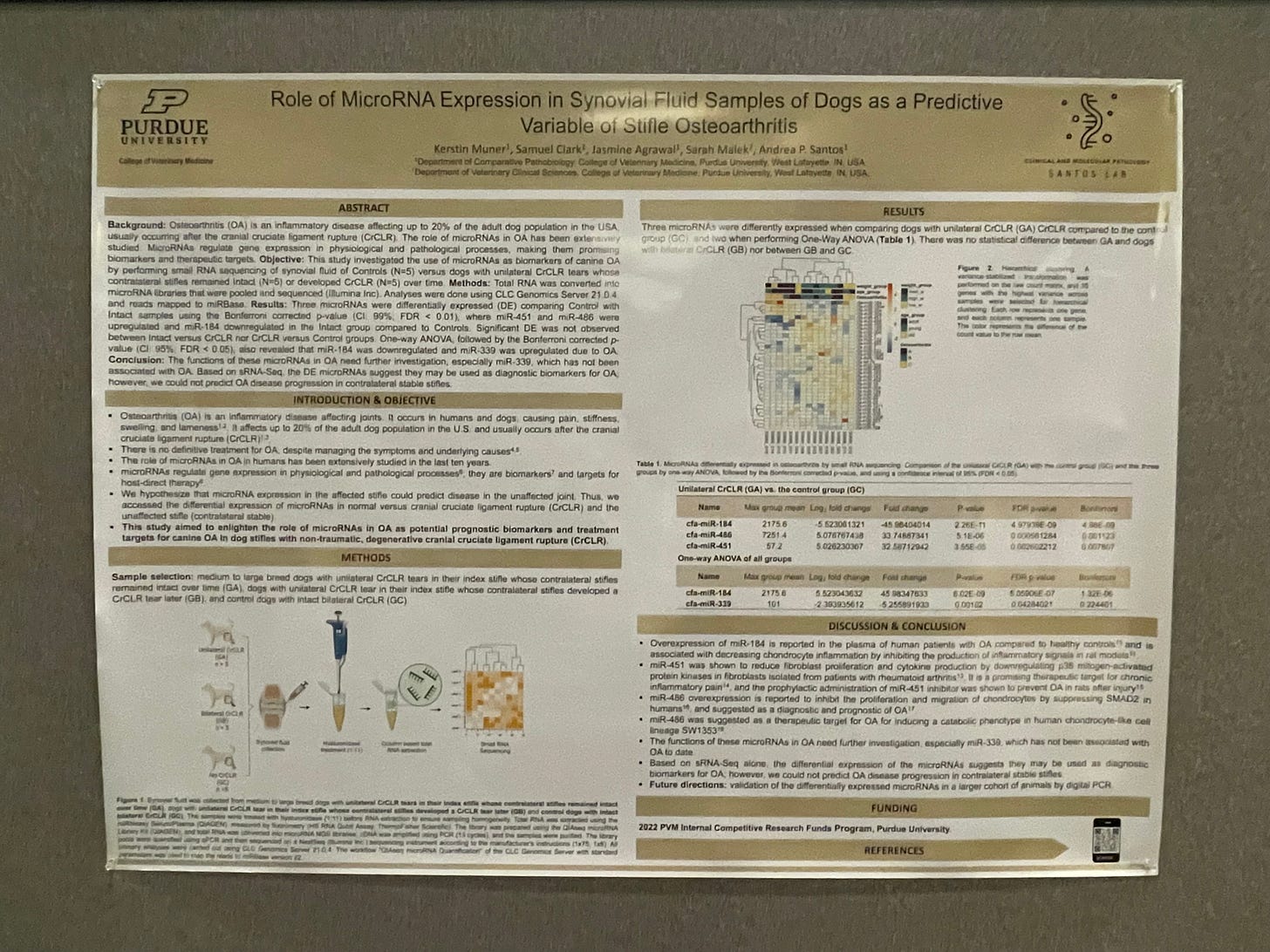

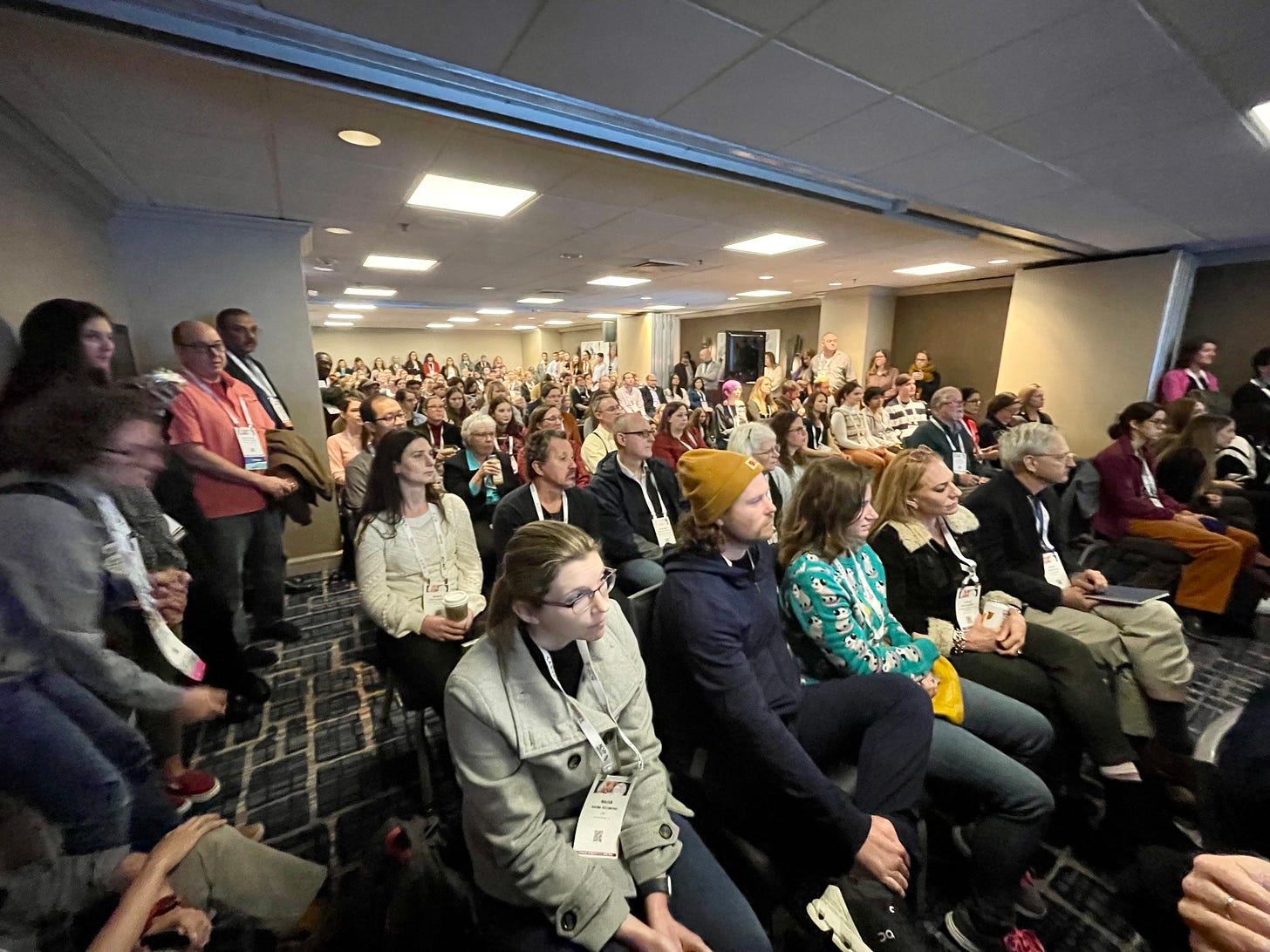

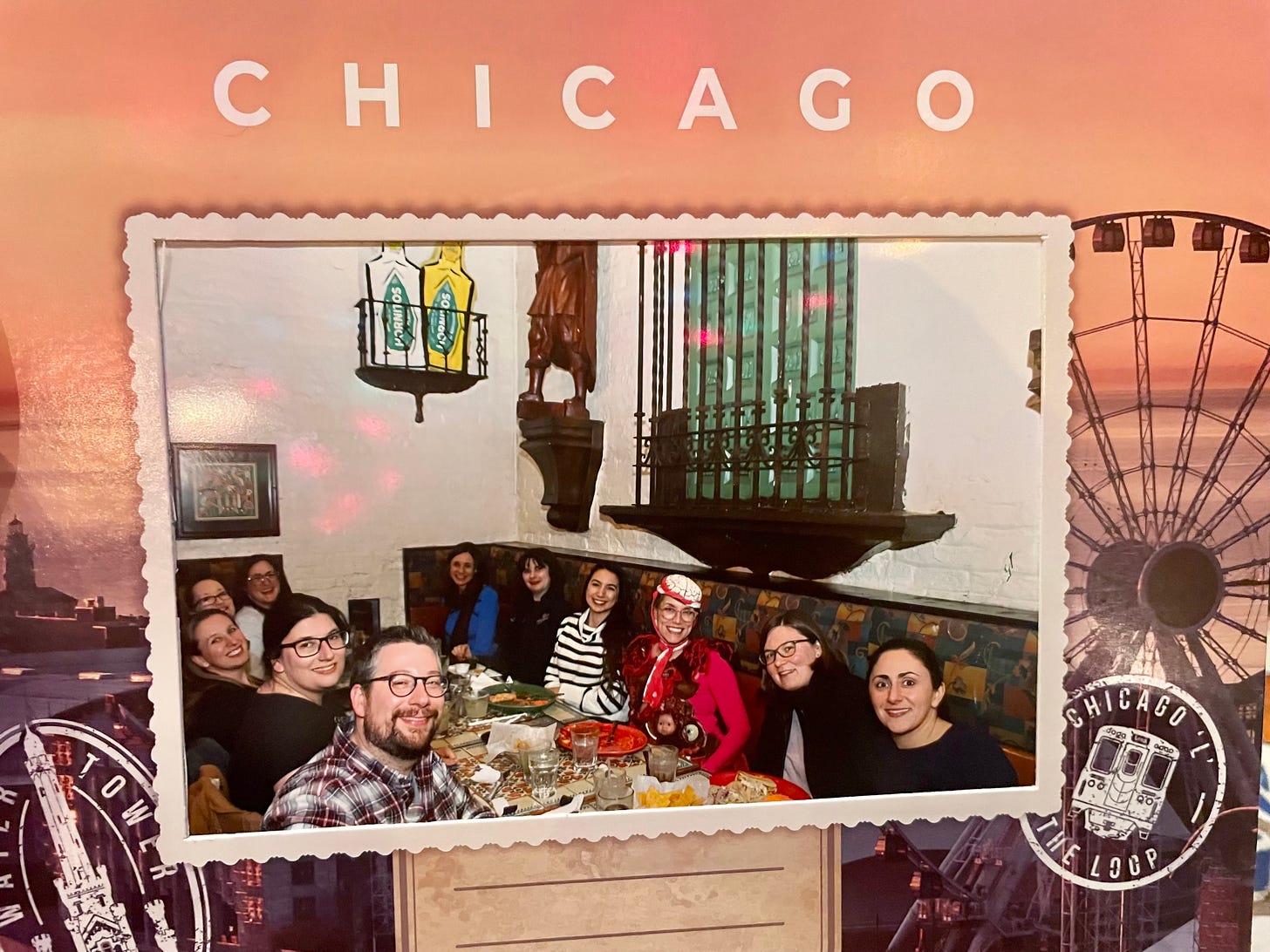
I have a concern, but maybe you can tell me if it’s misguided. All of this new AI and other emerging tech is going to cost $. My local vets are fantastic, but their office is shabby and I don’t know about their ability to integrate pricey tech. It feels like if/when they do, these costs are just going to be passed down to consumers. Same goes for doctors and dentists. My dentist’s office has all the latest tech, and what my insurance won’t cover there feels like it’s increasing every month. Can you speak to this concern generally?
Glad you got to have conference camaraderie again. I have many fond memories of that within my own prior industry.
An inspiring meeting indeed.